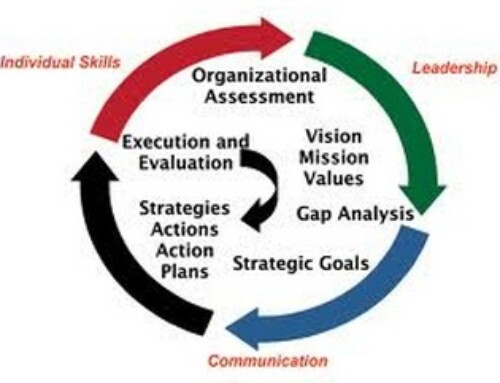 Real Estate is a fickle industry, cycling back and forth from favoring buyers to favoring sellers. It does not take an economist to develop a strategy for when to advertise for buyers and when not to. Certainly, real estate is in a condition of buyer saturation today. Brokers and agents who are advertising for buyers are mismanaging their advertising spend.
Real Estate is a fickle industry, cycling back and forth from favoring buyers to favoring sellers. It does not take an economist to develop a strategy for when to advertise for buyers and when not to. Certainly, real estate is in a condition of buyer saturation today. Brokers and agents who are advertising for buyers are mismanaging their advertising spend.
Despite the lack of demand for buy-side advertising, Zillow continues to grow revenue, mostly by raising prices. At some point, the market will reverse. Days on market will stretch back out to traditional levels and drive competition for Zillow advertising. Zillow’s revenue growth should explode. If Zillow can succeed when brokers and agents do not need to advertise to find buyers, imagine their success when advertising is required. To be clear, Zillow prices on volume and market demand. If there was no market demand, prices would not increase. They have publically commented that in some markets, prices actually go down because it is driven by dynamic pricing.
Zillow’s Game Changer
Zillow is now a home buyer. When you think about companies who are best positioned to own the inventory for property for sale, you need to put Zillow at the top of the list, followed closely behind by Redfin. I favor them over startups like Open Door because Zillow has already developed the asset of consumer traffic to their site. It will cost Open Door and others a lot of treasury to attract that buyer demand.
I also favor Zillow because of their relationship to the capital markets. Zillow has access to investment capital in ways that their competitors do not. I give Spencer and team a lot of credit for posting a stock price valuation of 10x revenue. Normally I would advise investors to short the stock, but if they transition the company into flipping homes, then their growth opportunity will be extended. They have the consumer audience to reach the home buyer and home seller. That is a very valuable position to be in.
Brokers Will Advertise to Zillow the Home Buyer.
Brokers and agents will certainly advertise to Zillow the Home Buyer with greater appetite than Zillow the Advertising Portal. This will certainly justify listing syndication to Zillow. As a home buyer, Zillow becomes the customer of the broker. Zillow has finally come to the real estate broker with a win-win value proposition. Brokers and agents who facilitate the sale of homes to Zillow are obviously going to advertising Zillow homes for sale on Zillow Group websites.
Zillow’s Biggest Risk
Zillow, Open Door, Redfin, and others are late to the home flipping party. They should have started buying homes five years ago. With interest rates rising today, home value growth will ebb. Flippers like Zillow the Home Buyer will be taking on more risk when buying homes today and days on market will increase the cost of capital (reducing margin). There is a high likelihood that we will see home values retreat from double digit growth and most likely start to go down, requiring Zillow the Home Buyer to factor in that risk.
The good news here is that Zillow understands the buy side propensity. With 200 Million consumers on their website every month, and their ability to view buyer lead inquiries, they know what homes will sell fast, and those that will not. Again, I see this as something that will benefit the long-term strategy of Zillow the Home Buyer as well as Redfin. Others like Open Door will not have access to that volume of raw demand data. Sidebar – brokers who have launched Buyside are nicely postitoned to leverage propensity data.
Will A Buyer Market Benefit Zillow
Obviously, there is little risk in purchasing home inventory today as prices are going up and interest rates are low. Economists are saying that we are nearing the end of this seller market cycle. High prices are increasing buyer concern, and the Federal Reserve Bank is inching up interest rates to cool off the market.
But, what will happen when buyers are rare and listings are plentiful? As mentioned above, Zillow will have great data to pick the right houses to buy. But they may also be in a position to re-margin the flip. Rather than offering sellers 10% below value for a quick sale, they may be in a position to have success at 15% or 20% below value to factor in the risk of a softer seller market.
Better yet, they can email the home buyers who are interested in the house and offer them a heck of a deal if they buy now. Again, I think that this will benefit Redfin too. But probably not Open Door unless they have millions of consumers in their marketing data base that I am not aware of.
Will Zillow Continue to Use Premier Agents?
I think that Zillow will continue to use Premier Agents. They have said as much in open public forms and in investor reports. Real Estate is still a hands-on business and I do not see that shifting anytime soon. Zillow also knows exactly who the best agents are in America. Zillow has great data on agent production, agent ratings, agent responsiveness, pricing, etc. They can choose a great agent to represent them much better than any consumer. If I were building a brokerage for the digital real estate economy today, I would recruit from the Zillow Premier Agent list in my area. What broker doesn’t want to recruit an agent or team that believes in investing in digital marketing to grow their business?
A Good Word About Open Door
I really like the people at Open Door. Eric Wu and squad are sharp and despite my opinion that they are not in the pole position to lead the market, that could change very quickly. Indeed, if firms like Zillow and Redfin are successful at buying and flipping homes, Open Door may very well be towed along. Open Door may also be better at buying and selling than their competitors. They are certainly handling more volume and have a single focus as a company.
As we see in Las Vegas casinos, the player that wins is not the one with the best cards, but the one that plays the best hand. Open Door has a singular expertise, and that can go a long way toward developinig superior outstanding performance.




